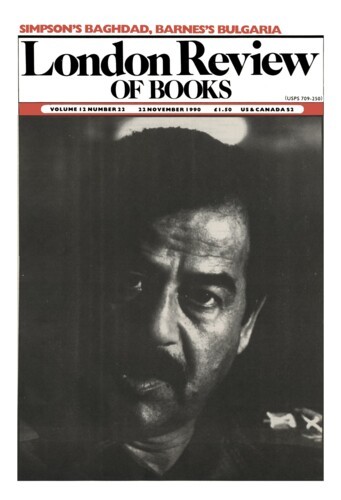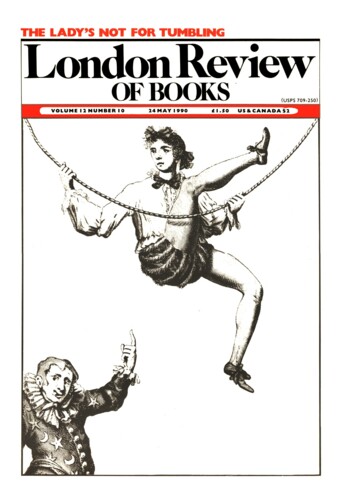Latent Discontent
W.G. Runciman, 11 June 1992
David Lockwood is the sociologist’s sociologist in the same way that Ken Rosewall used to be the tennis player’s tennis player: he’s the one the other pros turn out to watch. But you need to know the fixture list. To switch to an older metaphor, he is apt not only to hide his light under a bushel but to hide the bushel as well. He never writes book reviews or goes on television or airs his views about the state of the nation on Radio Three. It is typical of him that he should choose, as he has, to publish one of the most effective criticisms of the Marxist theory of action in an obscure American symposium, one of the most illuminating recent comments on the so-called ‘Weber thesis’ in an otherwise unmemorable festschrift, and one of the most valuable discussions of the alleged proletarianisation of clerical labour in a subsection of a postscript to a second edition of his influential monograph of 1958 on The Black-Coated Worker. So when he publishes in book form his long-considered views on some central issues in macrosociological theory, it is an event not only to be celebrated within the cloisters of academic sociology but to be drawn to the attention of anyone interested in the questions about the workings of human societies which have exercised him over more than three decades.




